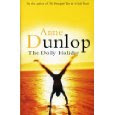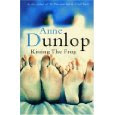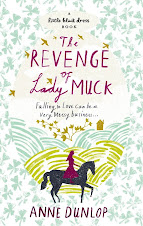
AMONG THIEVES
David Hosp
Nick was coming through Dublin airport last week; he’d been in Ireland on business.
‘What do you want from the bookshop?’ he texted.
I texted back: ‘Pick something you think you might read’
Should be interesting I thought, for my husband is not reader, unless you count reading the football results on the sport pages at the back of the newspaper. The only time I have ever seen a book in his hand was our first date to Sheikh’s beach, sixteen years ago and even though it was only John Grisham I allowed my-self a flutter of excitement, for I thought I’d finally found that elusive combination of brawn and brains – so rare in so many men... Turned out the John Grisham had never been opened, his sister had given it to him for Christmas; he used it to elevate his head out of the sand when he was sunbathing…
Nick landed into Bahrain with Among Thieves by David Hosp.
“Any reason why you picked this?”
He shrugged. He was noncommittal. “Only because I couldn’t find anything with a picture of a gunman on the front.”
Among Thieves was inspired by the largest art theft in history. On St. Patrick’s Day 1990, while the city of Boston was celebrating with green beer and rowdy parades two men dressed as police officers bluffed their way in to the Isabella Stewart Gardner Museum, overcame the guards and made off with a dozen works of art, worth 500 million dollars.
I didn’t know this, but apparently, dissident outlaws use art as currency, because it’s lighter and easier to carry than cash. And some of it is extraordinarily valuable. Sometimes the thieves trade the works for guns, sometimes they hold the pieces to ransom until the owner’s insurance money is handed over...
In this fictionalised account of ‘who-dunnit’ – who robbed the Isabella Stewart Gardner Museum - the thieves are a psychopathic IRA man and a small time Boston gangster. But the heist went horribly wrong: the paintings were not insured, and they were too famous to be sold on the open market.
Now twenty years later the IRA man is back in Boston, seeking the stolen paintings, to fund the resurrection of the Troubles. Meanwhile his partner in the robbery, Devon Malley, is in jail. He’s been nicked stealing knickers (I couldn’t resist that!) and has called his attorney Scott Finn. Not only does he want Finn to spring him from jail, he also wants Finn to babysit his daughter until he springs him from jail...
Finn is a bit of a soft touch. He’s from a disadvantaged background, he was reared in government institutions; he ran with the bad boys when he was younger. He doesn’t want Malley’s daughter exposed to such an environment. He agrees to look after Sally Malley.
Little does dad Malley know, but the safest place for him is jail; the IRA man hunting him down will stop at nothing to get the relevant information about the whereabouts of the paintings...
“How far did you get in the story?” I asked Nick.
He looked at me strangely. He said, “You asked me to pick a book I thought I might read. But you didn’t actually ask me to read it. Did you want me to read it? Why didn’t you say? I might have fitted in a few pages after District 9 on the movie channel...”
David Hosp is a Boston attorney. Among Thieves is his fourth novel. He writes on his daily commute by boat across Boston Harbour.
VERDICT: Perfect entertainment for a seven hour flight. Nick doesn’t know what he was missing!














